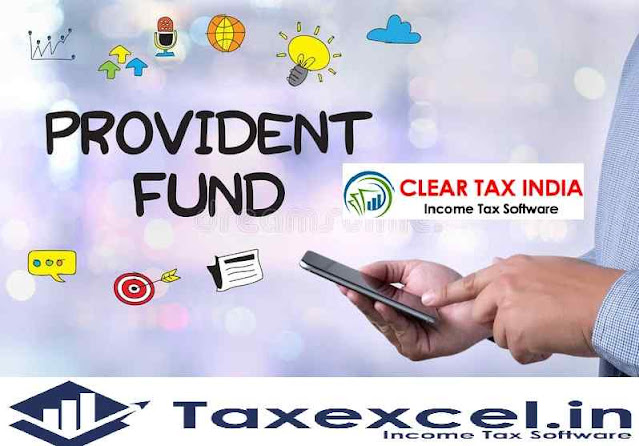P.F has increased the tax exemption limit by Rs 5 Lack. As per the Budget 2021, has raised the limit for tax-exempt contributions to the Provident Fund (PF) by Rs 5 lakh (from Rs 2.5 lakh. This increased tax-exempt limit only applies to PF contributions where no employer contributes. The announcement was part of the amended provisions of the 2021 Finance Bill when the bill was passed in the Lok Sabha on March 23.
It will not benefit private-sector employees. This is because under the Employees Provident Fund and Miscellaneous Act, 1952, it is mandatory for employees to make a combined contribution (currently 12%) to the EPF account with their own contributions, i.e. 12%. Thus, an employee working in the Non-Government sector may invest a maximum of Rs 2.5 lakh to the EPF and VPF in a financial year, to take interest in the tax-exempt declared budget-2011 effective April 1, 2021.
For the government employees, the General Provident Fund a self contribution fund where the government not contribute. Rather the government’s contribution goes to the workers ’pension fund. Since the employer (e.g., the government) has no contribution, public sector employees can contribute a maximum of Rs 5 lakh to their PF accounts in a financial year to earn tax-exempt interest.
The excess amount of Rs 5 lakh will affect government employees contributing to the General Provident Fund. However, the limit for private-sector employees will continue to be Rs 2.5 lakh as employer employees need to contribute to the future fund.
In the case of private-sector employees, the rules of the EPF project are governed by the Employees Provident Fund Act, 1952. As mentioned above, an employer must make a matching contribution to the Employees Provident Fund. No employee can contribute to his own EPF account without the employer's contribution. However, for Non-Govt employees, ‘the limit of the contribution they can make to continue earning tax-exempt interest in a financial year would be Rs 2.5lakh for both the E.P.F. & V.P.F. in the same financial year.
In the budget of 2021, the finance minister wanted an interest tax of more than two and a half lakh rupees on the contribution of the employees. During the announcement of amendments to the Finance Bill on March 23, 2021, the Finance Minister increased the coverage of this officer to five lakh rupees, where the employer did not contribute anything to the fund. Private sector employees will not be affected by this change because the provisions of the Provident Fund Act that apply to the private sector, as well as employees both, contribute to the fund. This change will benefit government employees where five lakh rupees will now be applicable.
The main feature of this Excel Utility:-
1) This Excel utility prepares and calculates your income tax as per the New Section115 BAC (New and Old Tax Regime) as per Budget 2021
2) This Excel Utility has an option where you can choose your option as New or Old Tax Regime
3) This Excel Utility has a unique Salary Structure for Government and Private Employee’s Salary Structure.
4) Automated Income Tax Arrears Relief Calculator U/s 89(1) with Form 10E from the F.Y.2000-01 to F.Y.2021-22 (Update Version)
5) Automated Income Tax Revised Form 16 Part A&B for the F.Y.2021-22
6) Automated Income Tax Revised Form 16 Part B for the F.Y.2021-22
7) Individual Salary Sheet











0 Comments